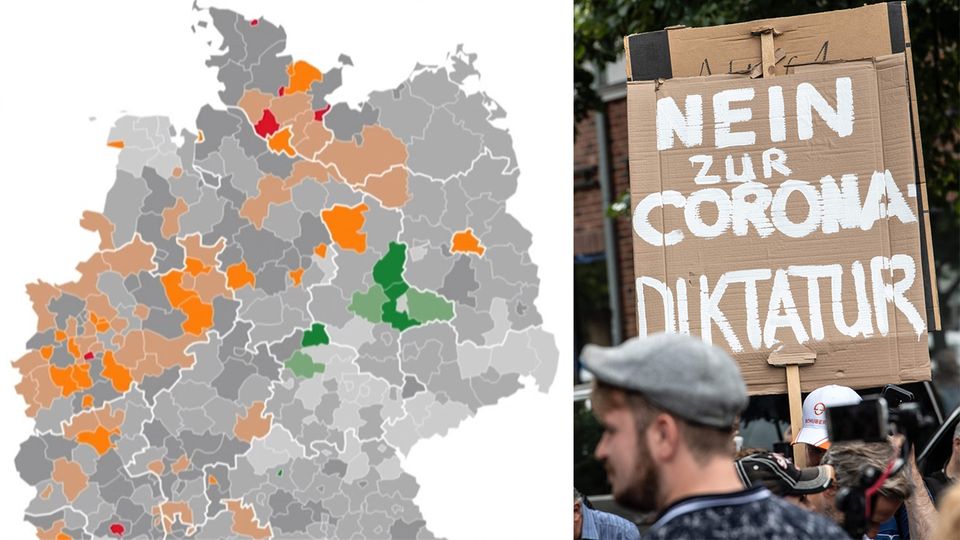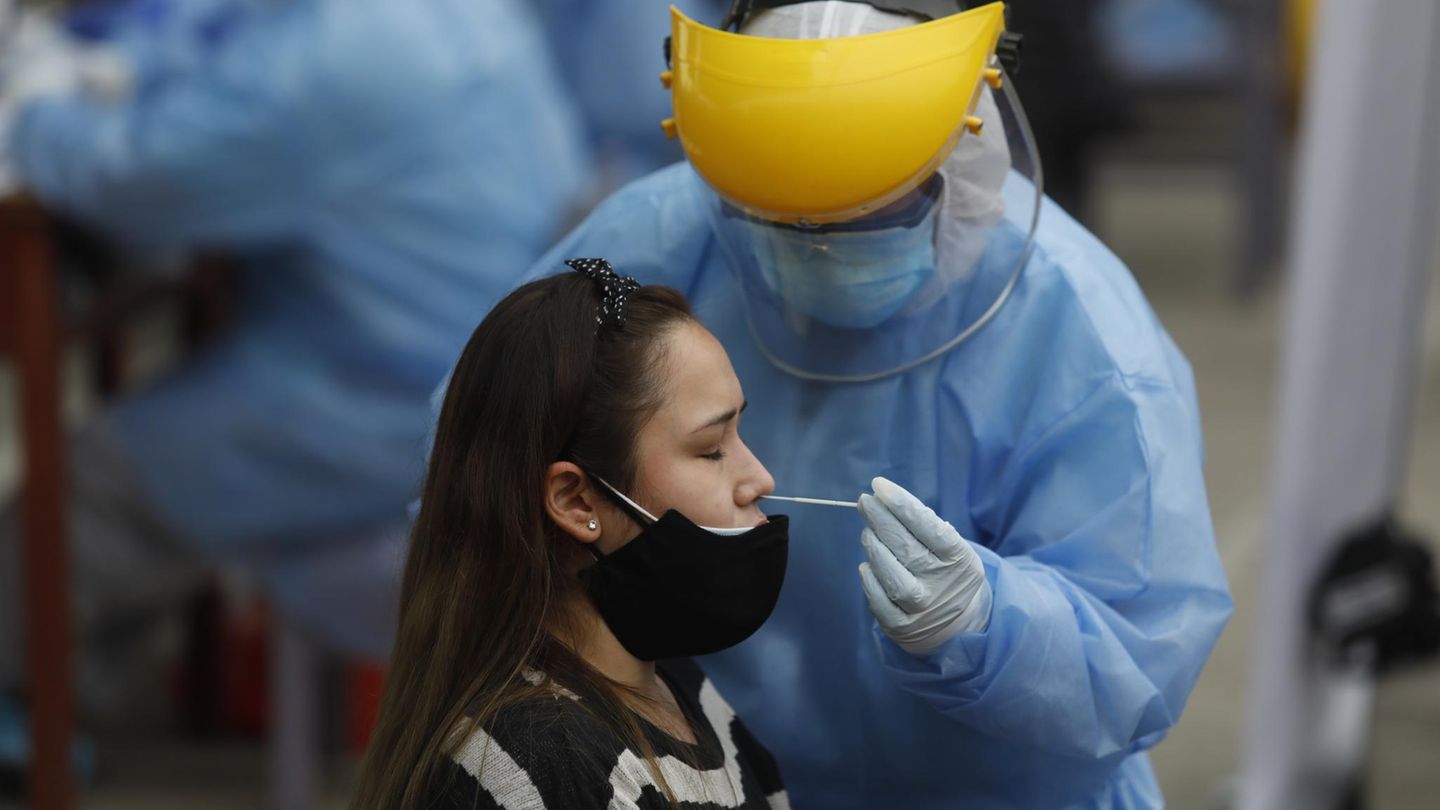A study on possible problematic properties of the corona virus variant Lambda recently caused uncertainty. Experts calm down, however.
The one coronavirus has long since ceased to exist – there are now several variants of the original wild type. They are divided into two groups: Some of them are under special observation, so-called “Variants of Interest” (VOI). Others are rated as “Variants of Concern” (VOC), that is, as worrying. VOCs have been shown to be more contagious, more difficult to control or lead to more serious illnesses. The World Health Organization WHO currently classifies four variants in this category: Alpha, Beta, Gamma and Delta.
A spotlight is currently also on the virus variant Lambda, which was first documented in Peru in 2020. The reason: a few days ago a Japanese team published a so-called “Lambda variant is more infectious and immune-resistant”. The study has not yet been reviewed by external experts or published in a specialist journal. Several media recently reported on the study.
Variants that could be dangerous for vaccinated and convalescent people or that could weaken immune protection more than previous variants are currently considered to be the greatest potential threat in the pandemic. The study and the reports about it fueled speculation as to whether such a variant might have occurred with Lambda – but experts reassure.
Lambda variant does not cause particular concern among experts
The World Health Organization (WHO), for example, pointed to a currently not particularly strong spread of the variant: Covid 19 expert Maria van Kerkhove said on Wednesday: “It is not really going up, not even in Peru, where the variant was first discovered.” According to information from Peru, the lambda variant is being replaced there by the gamma variant.

The data from Japan are currently being overinterpreted, said the Secretary General of the German Society for Immunology, Carsten Watzl, on Wednesday at the request of the German Press Agency. The data showed that lambda was somewhat more contagious than the original virus in laboratory tests, but not more contagious than the Delta variant, which is currently prevalent in Germany. Lambda could therefore “escape immune protection somewhat, but not as strongly as Delta”. In this respect, this variant does not yet worry him based on the currently available data, explained Watzl.
Limitations of the Study
The immunologist announced that the term immune resistance in the title of the paper was “simply wrong in relation to the data shown”. One must also say that no real lambda viruses were used for the investigation, but other viruses that only carry the so-called spike protein of lambda. Sars-CoV-2 thus enters human cells. Several of the new problematic variants show increased genetic changes at this point.
In many studies it is tested in the laboratory how well antibodies against variants work. However, such experiments only allow limited conclusions to be drawn about the protective effect of vaccination in real life. The human defense is also based on so-called T cells. Against this background, protection against severe disease is likely to remain even in the case of increased infections through the lambda variant, said Christine Dahlke from the University Medical Center Hamburg-Eppendorf (UKE) on Wednesday in a video link.
A US team also presented results in a pre-print at the beginning of July, which indicated that the vaccines currently used also protect against lambda.
Lambda (C.37) is currently considered a “variant of interest”. According to the WHO, the variant has now been detected in 40 countries, the first evidence came from August 2020. In Germany, according to data from the Robert Koch Institute, lambda has been found 100 times in analyzes since the beginning of the year, which corresponds to a share of 0.1 percent. In the past few weeks, only a few cases have been found. At the same time, Delta developed into the dominant variant in Germany.




